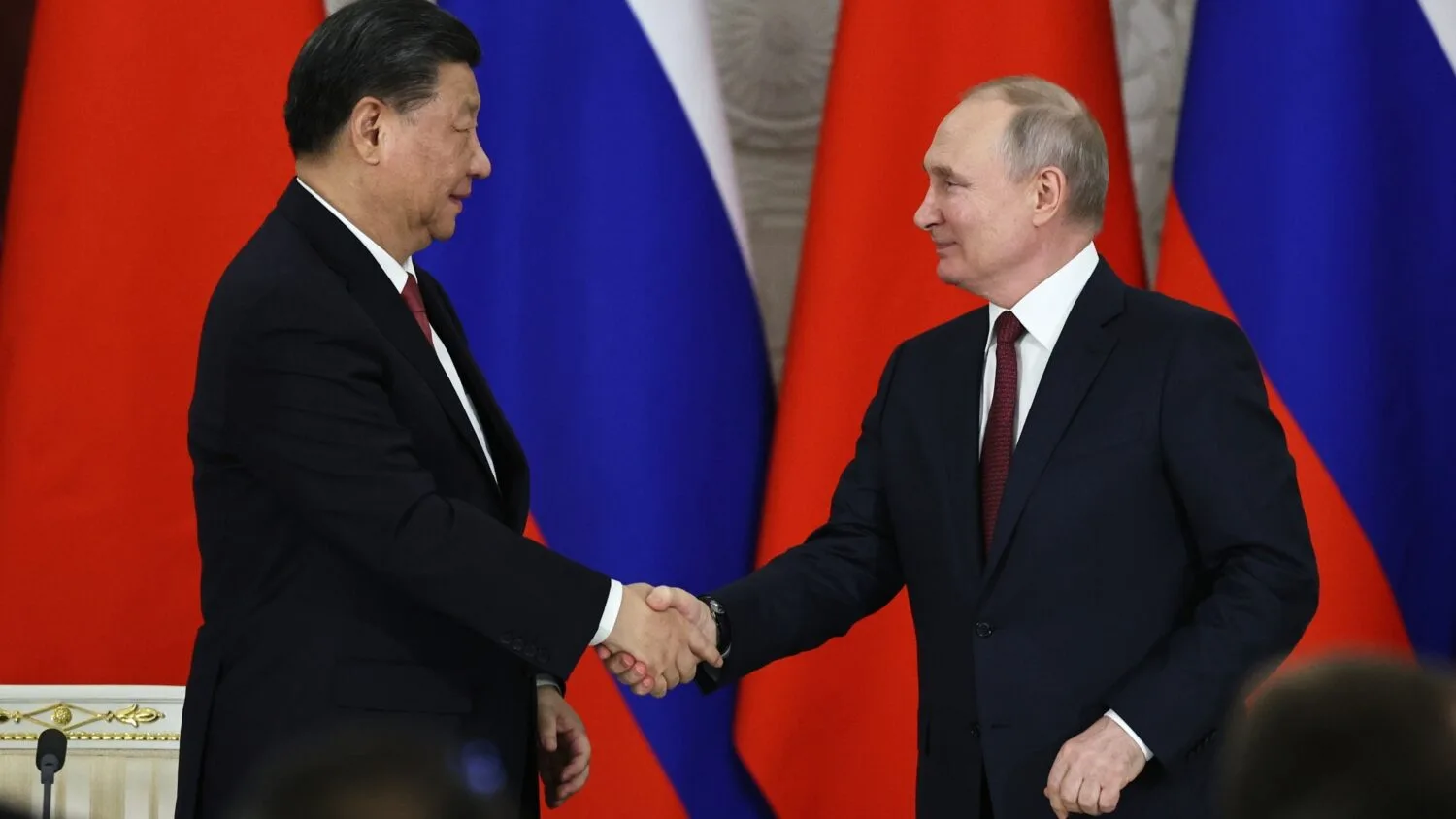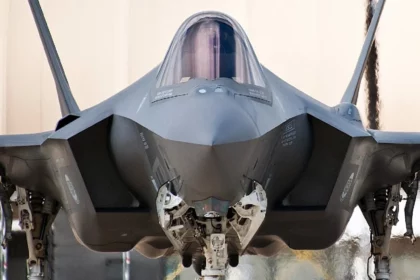On Thursday, China’s leader Xi Jinping hailed ties with Russia as “conducive to peace” as he met with his counterpart Vladimir Putin in Beijing.
It is Putin’s first trip abroad since his March re-election and the second in just over six months to China, an economic lifeline for Russia after the West hit it with unprecedented sanctions over its military offensive in Ukraine.
Putin, who is seeking greater support from China for his war effort in Ukraine and his isolated economy, was greeted by Xi at a grand welcoming ceremony outside central Beijing’s Great Hall of the People, footage by state broadcaster CCTV showed.
The national anthems of both countries and martial tunes blared out as the two leaders met, kicking off a two-day visit by Putin that is expected to see the countries deepen a relationship they have declared has “no limits”.
In a meeting, Xi then told Putin that “China-Russia relations (are) not only in the fundamental interests of the two countries… but also conducive to peace,” according to a readout from Beijing’s foreign ministry.
“China is ready to work with Russia to… uphold fairness and justice in the world,” he added.
“The China-Russia relationship today is hard-earned, and the two sides need to cherish and nurture it,” Xi said.
The Russian leader’s arrival came hours after he hailed his country’s troops for advancing on “all fronts” on the battlefield in Ukraine, following a major new ground assault.
Xi, who returned last week from a three-nation tour of Europe, has rebuffed Western criticism of his country’s ties with Moscow, enjoying cheap Russian energy imports and access to vast natural resources, including steady gas shipments via the Power of Siberia pipeline.
“This is Putin’s first trip after his inauguration, and it is therefore intended to show that Sino-Russian relations are moving up another level,” independent Russian political analyst Konstantin Kalachev told AFP.
“Not to mention the visibly sincere personal friendship between the two leaders.”
But as the economic partnership comes under scrutiny in the West, Chinese banks fearing US sanctions that might cut them off from the global financial system have begun turning the screws on Russian businesses.
The Kremlin this week said the two leaders would discuss their “comprehensive partnership and strategic cooperation” as well as “define key areas of development of Russian-Chinese cooperation and exchange views on international and regional issues”.
Putin, in an interview published in Xinhua ahead of his visit, hailed Beijing’s “genuine desire” to help resolve the Ukraine crisis.
US Secretary of State Antony Blinken, who met Xi in Beijing last month, warned China’s support for Russia’s “brutal war of aggression” in Ukraine had helped Russia ramp up production of rockets, drones, and tanks — while stopping short of direct arms exports.
China claims to be a neutral party in the Ukraine conflict and the foreign ministry in Beijing said the two leaders will exchange views on “bilateral ties, cooperation in various fields, and international and regional issues of common interest”.
China-Russia trade has boomed since the Ukraine invasion and hit $240 billion in 2023, according to Chinese customs figures.
But after Washington vowed to go after financial institutions that facilitate Moscow, Chinese exports to Russia dipped during March and April, down from a surge early in the year.
An executive order by President Joe Biden in December permits secondary sanctions on foreign banks that deal with Russia’s war machine, allowing the US Treasury to cut them out of the dollar-led global financial system.
That, coupled with recent efforts to rebuild fractured ties with the United States, may make Beijing reluctant to openly push more cooperation with Russia — despite what Moscow may want, analysts said.
Eight people from both countries involved in cross-border trade told AFP in recent days that several Chinese banks have halted or slowed transactions with Russian clients.
According to Alexander Gabuev, director of the Carnegie Russia Eurasia Center in Berlin, the banks are “operating on better-be-safe-than-sorry principles, which reduces the volume of transactions”.
“Finding out whether the payments are related to the Russian military-industrial complex… is creating a considerable challenge for Chinese companies and banks,” he told AFP.
Putin’s post-election trip to Beijing echoes Xi’s visit to Russia after his re-anointing as leader last year.
Experts expect this week’s highly symbolic meeting to result in toasts of the “no limits” partnership, as well as some deals signed and pledges to increase trade.
The two leaders are set to sign a joint declaration following the talks, the Kremlin said, and attend an evening marking 75 years of diplomatic relations between the two countries.
Putin will also meet Premier Li Qiang — China’s number two official — and travel to the northeastern city of Harbin for a trade and investment expo.




